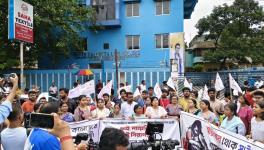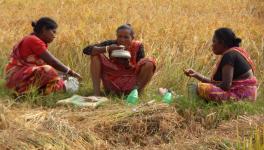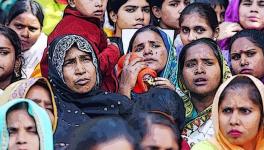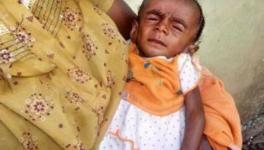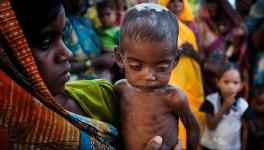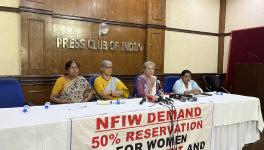‘Questionable Decision’: AIDWA Flags Exclusion of Anaemia From NFHS-6
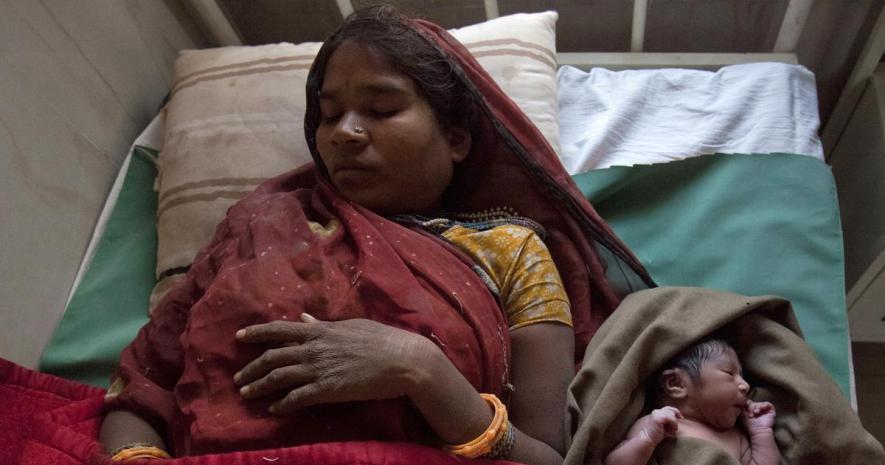
In NFHS-5, an alarming revelation showed that over 57% of women and over 67% of children in India suffer from anaemia. (File photo)
Image credit: Scroll.in
Delhi: The All India Democratic Women's Association (AIDWA) has expressed serious concern about the Bharatiya Janata Party-led central government's “questionable” decision to remove anaemia from the survey indicators of the National Family Health Survey - 6 (NFHS-6).
In the previous NFHS-5, an alarming revelation showed that over 57% of women and over 67% of children in India suffer from anaemia, a health issue with significant implications for maternal and child mortality. Anaemia also hampers the growth and development of children and weakens the resistance to infections among women and children, posing serious health risks.
Medical experts have emphasised that anaemia's prevalence is not to be overlooked as a mild problem or an isolated occurrence, teh AIDWA said, adding that it has far-reaching consequences for the health and well-being of adolescents, pregnant women, and children.
Despite this critical health concern, the BJP government has decided to exclude anaemia data from the NFHS-6 survey, citing technical reasons related to data reliability. However, public health experts assert that the survey reports are valid as they are based on comparisons with earlier data collected on the same basis, the AIDWA statement said.
AIDWA highlights the importance of such data at the district level, as the prevalence of anaemia varies widely across states and districts in India. The NFHS survey provides valuable information for assessing where interventions are most needed. States like Gujarat and West Bengal have ranked high on the list in previous surveys, underscoring the significance of anaemia data.
The government’s decision to drop anaemia from the survey came after some experts pointed out flaws in the method used to estimate anaemia in the NFHS-5 survey, which apparently led to overestimation.
Experts who were part of meetings with the Union Health Ministry and Niti Aayog, where the decision to drop anaemia from NFHS-6 was taken, identified the said problem with the NFHS estimation method, the Times of India reported. The survey used capillary samples or blood drawn from a finger prick, which was then measured using an instrument with results that could vary by almost a gram per decilitre of blood.
However, AIDWA has raised suspicions that the government's motive behind excluding anaemia data is to make the problem appear “invisible”, rather than addressing it effectively.
“Having failed to address the problem in the past, and being unwilling to take necessary steps in the future, public relations management is substituting for public health management,” the AIDWA statement said.
AIDWA firmly demanded that the decision to exclude anaemia data from NFHS-6 be reversed immediately, and its measurement be reinstated without any delay.
The organisation also urged caution regarding the hasty introduction of iron-fortified rice into the government's food security strategies. Instead, comprehensive measures to tackle anaemia and malnutrition among vulnerable sections, especially women and children, must be prioritised, it said. These measures should include controlling the soaring prices of essential commodities and strengthening the Public Distribution System (PDS).
Get the latest reports & analysis with people's perspective on Protests, movements & deep analytical videos, discussions of the current affairs in your Telegram app. Subscribe to NewsClick's Telegram channel & get Real-Time updates on stories, as they get published on our website.









